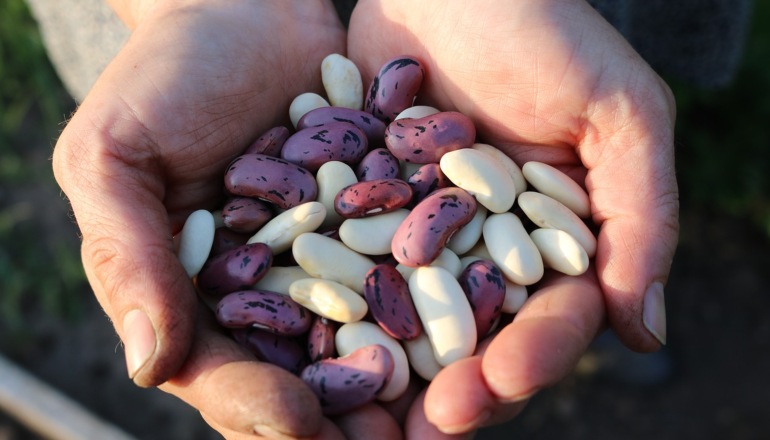
Beans, beans, the musical fruit. You may have heard the rest of the song. While gluten has been attacked in the news over the last few years, beans have been criticized under the radar. Some diets claim beans are unhealthy due to blocking the absorption of other nutrients, having too many carbohydrates, or not being a natural part of the human diet. On the other hand, vegans and plant-based dieters love beans. (They even make beans look like hamburgers.)
Beans and legumes are basically edible seeds. You may know many of the varieties — kidney, navy, black, lentil, cannellini, and butter beans. You can find them sold in cans, dried, frozen, or already sprouted. You may also find them mashed in other foods, such as hummus.
As with most things in nutrition, there are two sides to the bean story. Humans can consume a wide range of foods and still be healthy. We are all individuals and have different tolerances for foods, as well as different preferences.
Let’s look at why you might want to add in beans to your diet — and why you might avoid them.

3 Reasons to Eat Beans
1. Price
There is a reason famous financial guru Dave Ramsey tells people to start saving money by eating “beans and rice, rice and beans.” They are cheap sources of protein and carbohydrate.
A can of beans has a lot of nutrition bang for your buck. For example, a can of Simple Truth organic black beans has almost 25 grams of protein, 70 grams of carbohydrate (almost 20 grams of that carbohydrate is fiber), and 385 calories. For around a dollar, that’s not a bad deal. Dried beans are even cheaper, if you are willing to do the work. More on that later.
2. Nutrition
The protein and fiber I mentioned above are powerful tools to keep your hunger at bay. Consuming foods that contain protein and fiber can keep you from snacking between meals and over-consuming food at meals. In this manner, beans can help with weight control.
For vegans and vegetarians, your protein options are somewhat limited. And one issue I see with many plant-based eaters is the over-consumption of carbohydrates and sweets. Consuming beans and being extra diligent about getting adequate protein will certainly help curb that appetite and keep you satisfied longer.
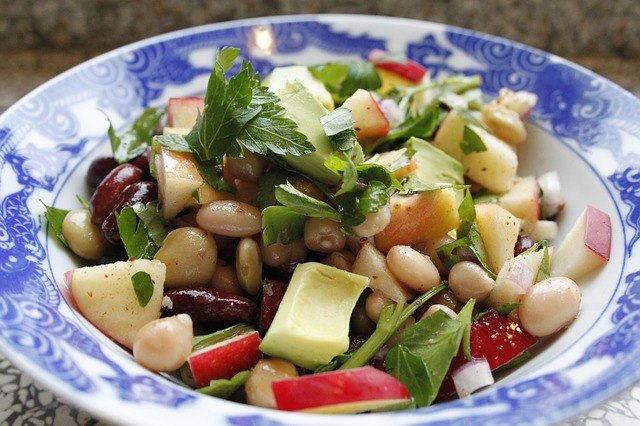
Beans contain many other nutrients that can be quite powerful for your health. Phytonutrients such as anthocyanins, tannins, and flavinoids are all found in beans. These compounds, among others, are known to be protective against many diseases including cancer.
Note: from a research point of view, it is extremely important to study each compound and try to pinpoint exact mechanisms for each nutrient. From a practical standpoint, we shouldn’t worry too much about individual compounds. (Imagine telling someone at an office party about your tannin intake.) The main takeaway is that beans have a lot of beneficial compounds and consuming a variety of them can be one way to up your nutrient intake.
From a broad standpoint, bean intake in general is seen to be a positive for your health. It seems to have associations with cardiovascular health and a higher intake of vitamins and minerals (including copper, iron, folate, calcium, magnesium, and niacin). While beans may have their downside, especially at an individual level, bean consumption seems to be an overall positive.
3. Variety of Dishes
The culinary use of beans is widespread. Baked country beans are always a favorite in my house. Hummus has gained a large increase in popularity, as a dip for vegetables, as an ingredient in a wrap, or fried and called a falafel. Black beans are served as a side dish to many Spanish and Mexican main courses. And, in many Asian cuisines, fermented beans such as soy, tempeh, and natto are enjoyed. Sprouted beans are great for salads. Lentil soup is another filling and tasty dish.
You get my point. Beans are in a lot of things you see in stores and restaurants and may play a role in your family traditions. They offer a wonderful way to add variety to almost any dish, and with so many kinds of beans, the culinary options are endless.
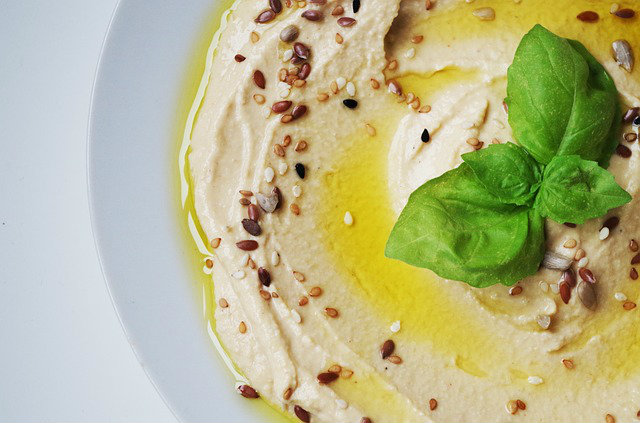
3 Reasons to Avoid Beans
1. Mother Nature’s Sense of Humor
Take, for example, the durian fruit. It is extremely dense with nutrients, yet smells like a dirty gym sock.
Beans are no exception to nature’s humor. As you may already know, beans can cause some digestive issues. If you want to sit by yourself on the train home, I suppose this can be a positive. But most of us avoid eating too many beans due to the related stomach upset and flatulence.
Much of these stomach issues comes from our body’s inability to properly digest certain nutrients in beans. In general, beans have carbohydrate chains that can take a while for your body to process. Fiber, much of which is indigestible, can also cause distress.
For some of us, these bean-related issues will never get better and it’s perhaps best to avoid beans, or at least large quantities of them. Chronically giving something to your body that causes distress can lead to many issues. Inflammation can lead to malabsorption of nutrients and can affect your activity levels because you feel bloated all the time. In general, if you can’t tolerate something after trying small amounts for a few weeks, it’s best to leave out of your diet.
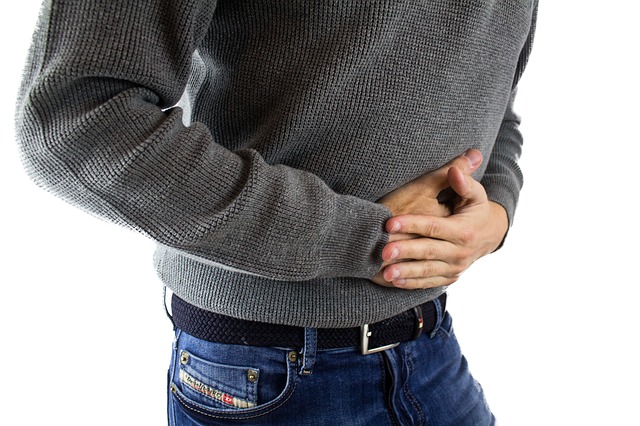
2. Lectins and Toxic Compounds
Beans and legumes contain a protein called lectins, which can cause a reaction in certain people. Lectins can bypass normal digestion and end up in your bloodstream, where the body may have an immune reaction. Immune reactions can be a lot of “fun” — bloating, low energy, poor appetite, being prone to infections, and generally feeling poorly.
In particular, kidney beans contain a lectin called phytohaemagglutinin, which can be quite toxic. Symptoms can include gastric distress and vomiting. The cooking and soaking process can lower the amount of this compound to safe levels. In general, when soaked overnight and cooked for at least ten minutes, kidney beans are safe. Personally, I don’t prepare them from dried and always buy them in a can.
Phytates are another nutrient found in beans that can cause trouble. These molecules tend to bind minerals like copper and iron, making them tough to absorb. This means what you read on a nutrition label may not be what you actually get out of the beans because your body’s ability to absorb those nutrients can be compromised.
The short story is that your body doesn’t deal well with some of the compounds naturally found in beans, so even in small amounts they can cause a reaction. Sometimes it’s been so long that you don’t know what “normal” should be and cutting out foods like beans can make a big difference in how you feel.
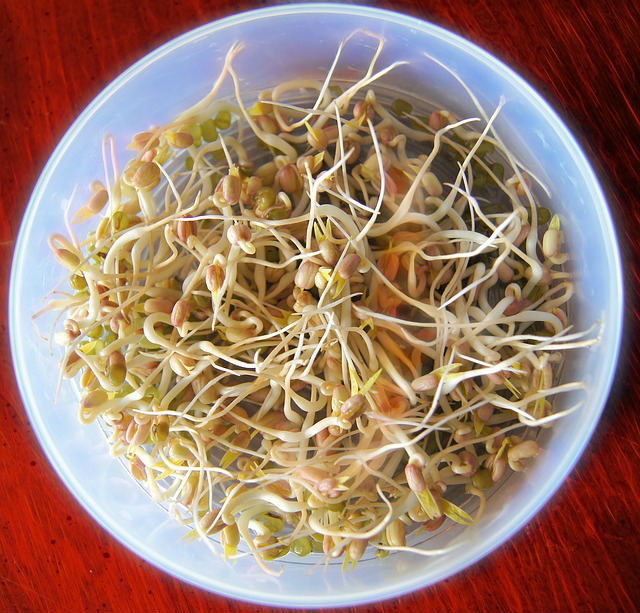
3. Foodborne Illness
The incidence of illness relate to beans and legumes is generally very low — the one exception is sprouted beans.
Many people opt for consuming sprouted beans due to the higher bioavailability of the nutrients they contain (i.e. you get more of the good stuff when you eat sprouted beans). Sprouted beans have lower amounts of the lectins and phytates, and more protein.
Beans are sprouted by soaking them in water, and letting the plant begin to sprout out of the bean. But because they are grown in these warm, moist environments, sprouts are occasionally involved with recalls regarding foodborne illnesses like listeria and E. Coli.
The Verdict on Eating Beans
Overall, beans can be a part of a healthy diet. I personally believe the pros outweigh the cons, but the ultimate decision depends on your body. If beans don’t make you feel well, there is no reason to include them in your diet. They are a helpful resource for nutrients, satiety, and variety — but they are not, by any means, mandatory.
Since beans aren’t a necessity, it can be wise to cut them out of your eating for a period of time (such as during the Whole Life Challenge). In this manner, you can give your body enough time to be without beans and monitor how you feel. Do you feel better? Do you feel no difference if you add the beans back after the Challenge ends?

While we have many ways of testing our health, sometimes the best way is to see what happens for ourselves.
You may find no difference — or you may discover something life changing. But for some of us, chronic problems can be solved by the simple act of eliminating certain types of food in our diet.
If You Choose to Eat Beans…
If you are going to include beans in your eating plan, then you do need to account for some of the associated problems. Here are some suggestions to make that easier:
- For dried beans, soak for 24 hours, changing the water at least a few times. Depending on the type of beans, cooking time may vary. The longer they can soak and cook, the fewer lectins and phytates will end up in your beans. This means you can get all the benefits of beans with less of the things that may cause issues.
- Canned beans are slightly more expensive but extremely easy to use. It may be worth it to stick to canned for a while. The cooking process has been done for you.
- Start small. Don’t begin eating beans by consuming an entire can. This is especially true if you like the people around you. Your gut bacteria must become accustomed to digesting beans, so begin slowly. Eat a quarter cup of beans in a salad, as a side dish, or tossed in a soup. If that feels okay, then you can gradually increase the quantity and frequency of your bean consumption each week.
- Sprout your own beans. As discussed earlier, there are concerns about foodborne illness with sprouted beans, but if you sprout them yourself, it can be safer and a lot of fun. I recommend soaking a random assortment of beans overnight. Then, rinse thoroughly and spread them out over a container or foil with drainage holes. Wet the beans three times a day, but make sure they can drain easily. After a few days, you will have sprouts to enjoy in a salad, wrap, or soup.
To Bean, or Not to Bean
Humans can eat a lot of things and thrive. But, for many of us, there are certain foods that just don’t work for our bodies — and beans are a common culprit.
What’s good for me may not be good for you. This creates a problem in nutrition science, as it is difficult to account for individual variations. In the end, only you can tell whether beans make you feel good or aren’t worth the problems. So, take the time to experiment so you can truly know what works for your body, health, and life.



































